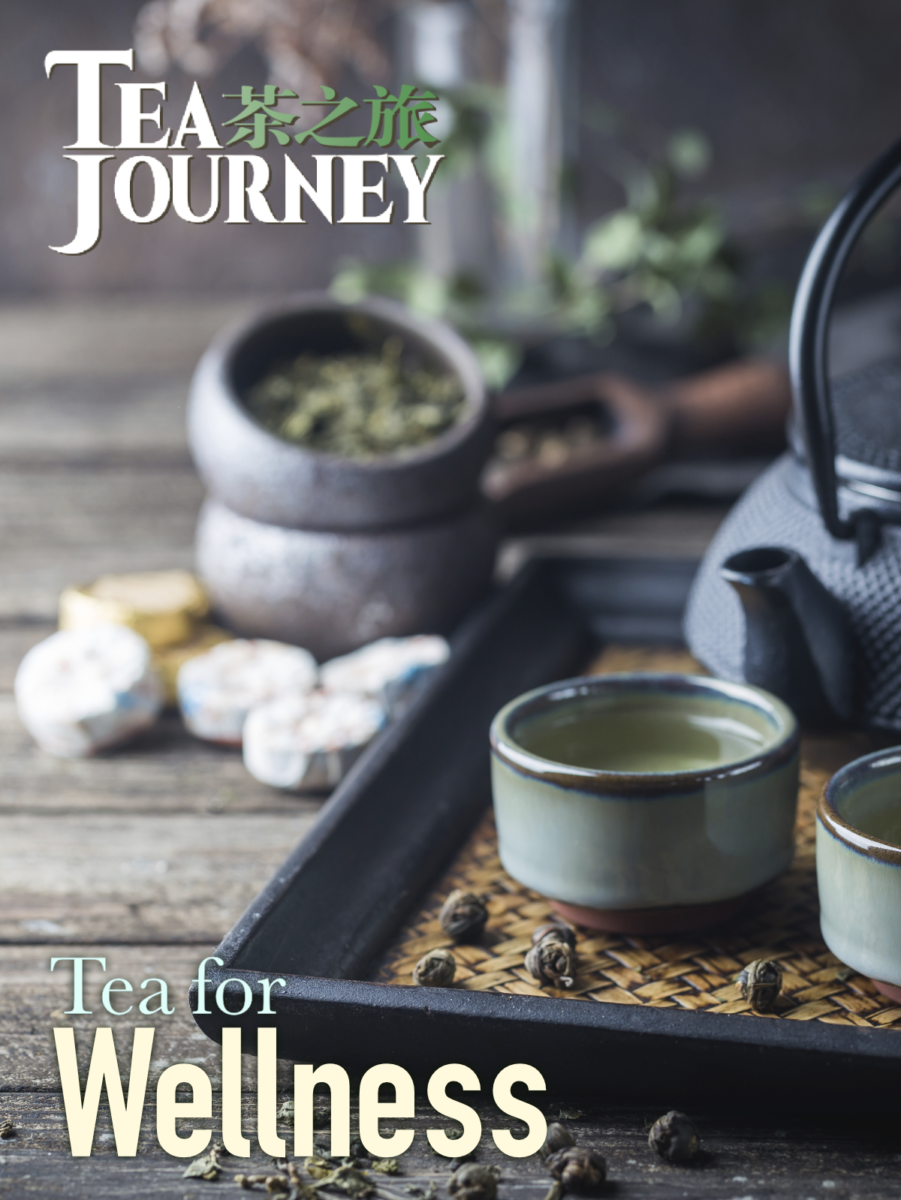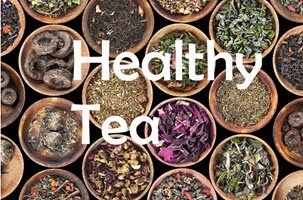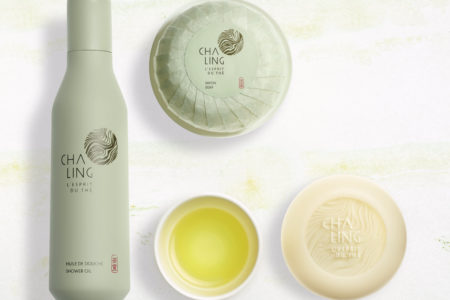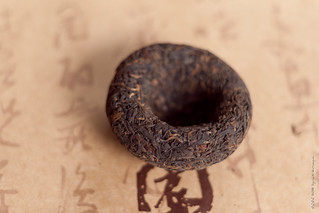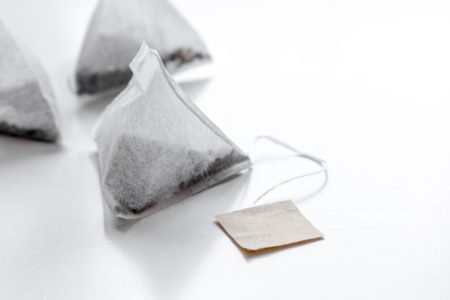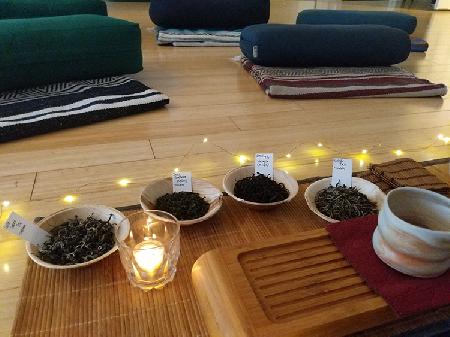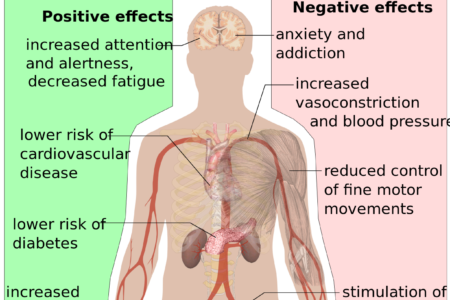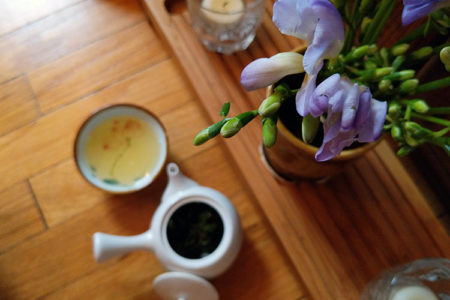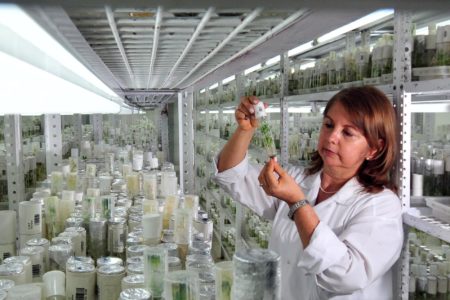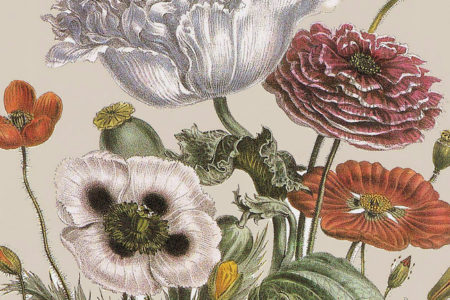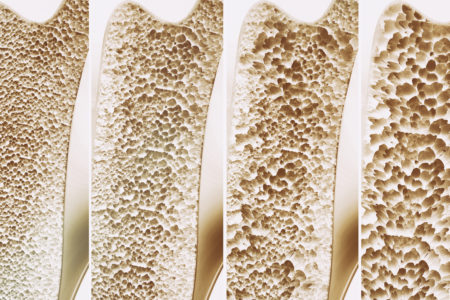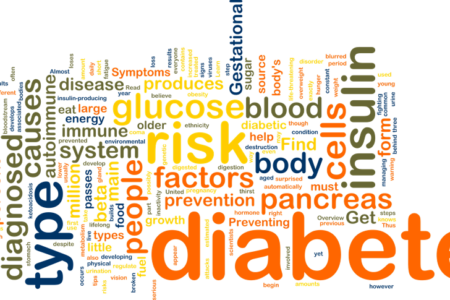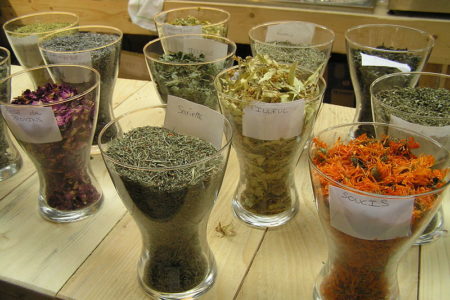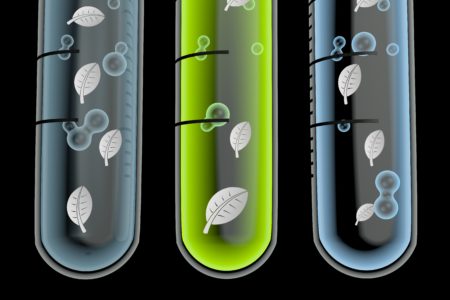More In This Issue
The Health & Wellness Issue [250 pages]
Tea is proven to enhance the well-being of those who drink several cups a day. It inspires a process of discovery among imbibers, cultivating a deep appreciation for the growing, crafting, and preparation of great tasting tea. Finding your own favorite tea leads to a daily ritual and, in time, a healthy life-long habit.
Glowing Skin – The Effects of Silver Needle on Skin Health
Several studies reveal that healthy skin begins with the microbes living in your gut. Drinking a flavonoid-rich Silver Needle white tea helps gut microbiota adjust biological activities, improve bioavailability, and produce antioxidants such as flavonols and phenolic metabolites.
How Tea Can Improve Your Milk Supply
Many mothers feel they don’t produce enough milk, especially in the earlier days, weeks, or months after giving birth; after all, when you breastfeed, you can’t see exactly how much your baby is eating. What if increasing your milk supply was as easy as brewing a cup of tea?
The Beauty in Tea
Legend has it, Asian princesses used an essence derived from the green tea leaves grown on the Korean island of Jeju to preserve their ageless beauty. Turns out, those princesses were definitely on to something. Today’s beauty products companies are capitalizing on the super-antioxidant polyphenols found in tea to make both skin and hair care lines.
Restful Tea and Tisanes
If you are wondering if tea can help you sleep better, the quick answer is yes so long as the tea is caffeine free.
How People Who Lose Weight Drink Tea to Help
The question is old and simple: Does drinking green tea directly create weight loss? The answer is not at all simple and it hasn't changed.
Tea and Your Brain
Tea helps your brain maintain efficiency by altering the physical structures of its networks of connections, a finding that opens up a promising new horizon in the investigation of tea and wellness.
Pu-erh Tea and Cardiovascular Health
In pu-erhs, the dynamic elements are microbial and have the most impact on lipids. The most promising avenues of research and application for standard tea types is cancer prevention and treatment. For pu-erhs, it is cardiovascular health.
Health & Wellness: Tea for All Your Ages
Tea is a lifetime drink and as our life moves on and times change, so do our preferences and needs. Tea offers every age group dimensions of value and enjoyment that move with the rhythms of life’s stages. There is no one “best” tea, but always one for you, at your age.
Enjoy Your Tea: Don’t Be Mythinformed
It’s all about the leaf, not the package, marketing, additives, flavorings and price. You can do better; even if you prefer tea bags, avoid green tea, or don’t bother measuring temperature or time. There are new options in every area of taste, variety, price, aroma, caffeine, healthiness, freshness, smoothness, sweetness and overall satisfaction.
Plastic Tea Bags: Shocking News or Nothing to Worry About?
The amount of plastic in a single bag is around 60 micrograms – 60 millionths of a gram. Change the headlines from “Tea bags release billions of particles” to “millionths of an ounce” and the emotive reaction is surely more muted. But the figures are exactly the same.
The Power of Tea Meditation
Earnestly practicing tea, with your whole mind and heart, is equal effort to time spent on a meditation cushion.
Caffeine: What We Really Know About its Effects
Caffeine is one of the main factors people consider in their choice of daily beverage. For some, it is the decider in their selection. For most, it is more a cautious concern.
Mindfulness at the Cupping Table
Researchers have identified that gratitude practices and encouraging positive feelings have direct effects on the immune system and cardiovascular system.
Biogenetics: Reducing the Mystery and Multiplying the Benefits of Tea
The foundation of genetic manipulation of tea is knowing what it is that you are manipulating. Tea’s a five-thousand year mystery tale. For every major fact we know, there is so much we have only been able to guess at or approximate about the “why” and “how” behind it.
Pesticides in Tea: Getting a Clear Picture Not a Vague Impression
There are four positions a tea lover can reasonably take on this complex question of tea safety. No one of them is self-evidently correct and, ironically, scientific data is often used to “prove” any of them. The aim of this post is to help you get a clearer focus on facts rather than impressions.
Tea and Women’s Health
One of the most encouraging outcomes of the vast volume of research studies on tea is the consistent accumulation of evidence of its positive impacts on key areas of women’s quality of life and protection from dangerous ailments.
Tea for Energy
If you want a pick me up, tea is hard to improve on. It is a gentler energizer than coffee, brings extra natural beneficial nutrients, is free of sugar, artificial stimulants and offers a range of flavors, which in itself can sharpen the senses and waken the metabolism.
Botanicals Reshape Tea Demand and Supply
There is a new interest in exploring the full range of phytonutrient benefits. For centuries, botanicals were the entire base for treatments of illnesses that we now routinely handle through pharmaceuticals.
Tea: Investing in Your Long-Term Bone Health
Think of tea as a nutrient for your bones and an investment in an imaginary health savings account. It won’t directly add to your income, but the odds are high that it will pay off in reducing the risks of osteoporosis and fractures endemic to old age.
Can Tea Lower Your Risk of Diabetes?
The benefits of tea may be due to its influence on the digestion of glucose (blood sugar), the ADA noted, or because of tea’s high polyphenol content.
If Drinking Tea While Pregnant or Breastfeeding, Moderation Is the Word
The risk from caffeine to humans during pregnancy is low but present.
Herbal Teas: Know the Risks So You Can Enjoy the Benefits
It's important to really know what you’re drinking and how it affects your body.
Tea Has Lots of Chemistry
Phytochemicals, biologically active compounds found in plants, provide roughly the chemical benefit of a serving of fruit or vegetables per cup of tea.
Caffeine May Lower Older Women’s Risk of Dementia
New research indicates that drinking many cups of tea a day can reduce the onset of dementia and Alzheimer’s in older women.
Weighing the Promises of Tea’s Weight-Loss Benefits
Although there’s certainly some evidence, and lots of hype, that the catechins and/or epigallocatechin gallate (EGCG) in green tea promotes better weight management, the number of human studies in this field is still quite limited.
